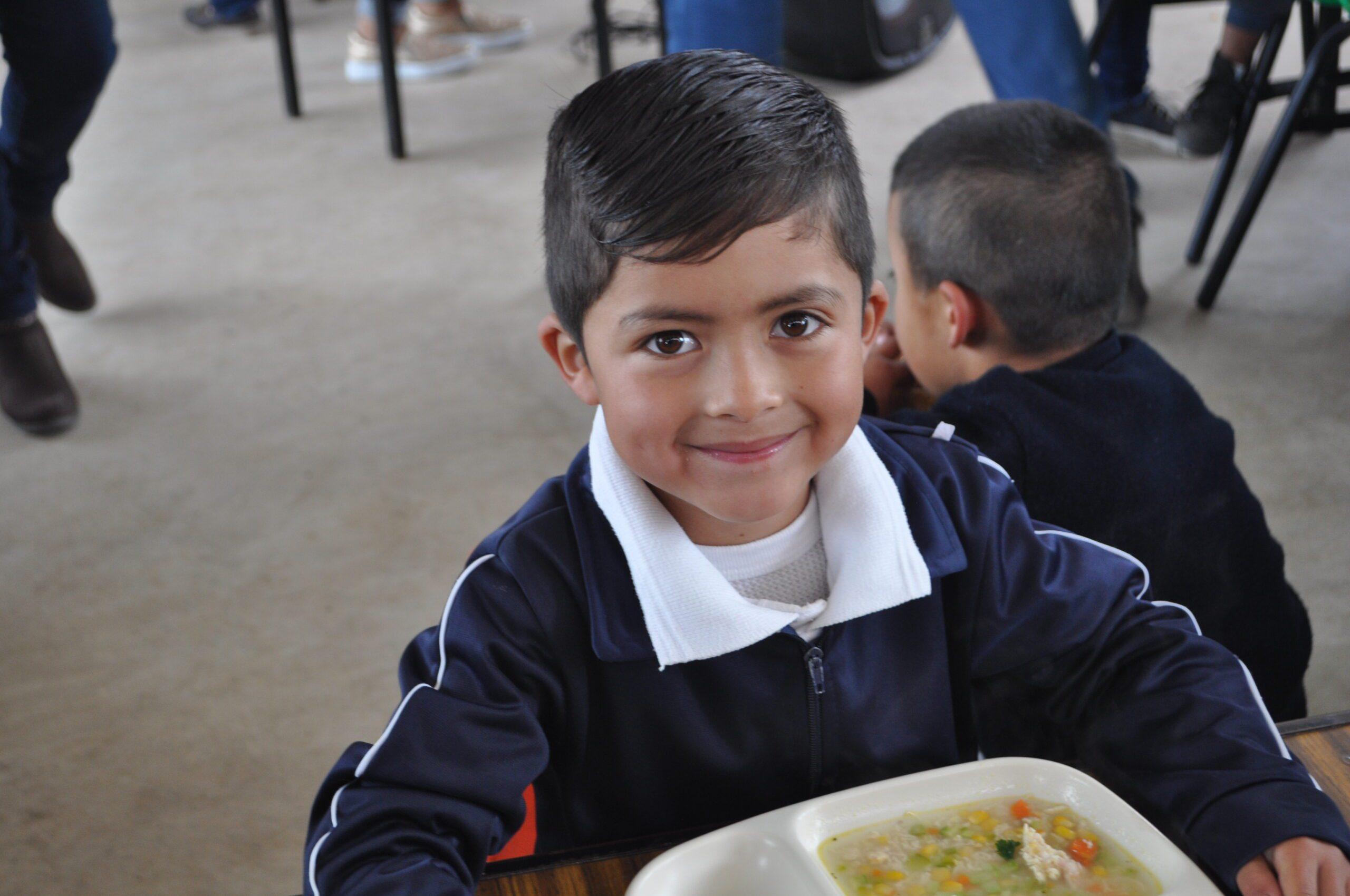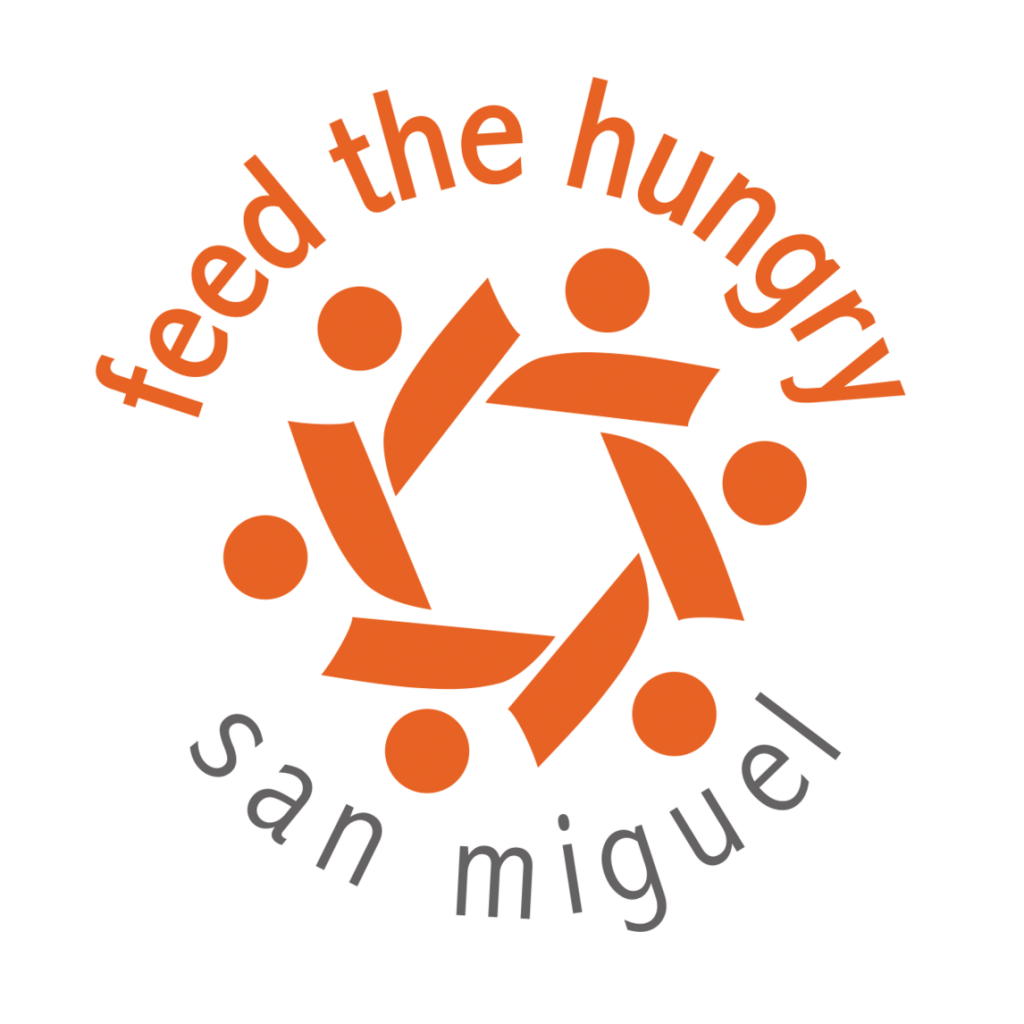A Community We Support: El Nuevo Cimatario

Background
In September 2018, a new Feed the Hungry San Miguel school kitchen opened in El Nuevo Cimatario, a community on the San Miguel de Allende municipal government’s list of rural populations in greatest need. It is 65 kilometers from the Feed the Hungry Center, one of our farthest delivery locations.
During school year 2023-2024, 45 children in primaria (elementary school) and 17 children in kinder (preschool) will receive a hot, nutritious lunch every school day. The school started extra classes from 1:00pm to 3:00pm for children with limited learning skills; they receive a fruit snack at 1:00pm. Purified water is also delivered to the schools for meal preparation and consumption by students and teachers.
Location Statistics
The most recent INEGI census (2020) reported an El Nuevo Cimatario population of 325 men, women, and children, residing in 77 households. Thirty-two percent of the residents were under the age of 14. Of the residents over 12 years old, 33% were employed. The average level of schooling completed by adults was less than six years, and 10% were illiterate.
Location Statistics
The most recent INEGI census (2020) reported an El Nuevo Cimatario population of 325 men, women, and children, residing in 77 households. Thirty-two percent of the residents were under the age of 14. Of the residents over 12 years old, 33% were employed. The average level of schooling completed by adults was less than six years, and 10% were illiterate.
Nutrition Report – School Year 2023-2024
For the latest Nutrition Report, staff nutritionists assessed 44 students in primaria and 12 students in kinder, through height, weight, and body fat measurements.
Malnutrition is associated with the absence of adequate hydration and nutritious foods in the diet, which provide a sufficient amount of energy, protein, fiber, vitamins, and minerals to ensure the growth and development of children.
The health assessment showed that many children are very underweight for their age, and in some cases, underweight for their height, due to insufficient calorie intake. In addition, when the physical examination was performed, several clinical signs were observed that are related to a diet that is not varied and is poor in healthy foods.
On the skin, we observed diffuse depigmentation, associated with probable niacin (B3) deficiency; xerosis (dryness) and follicular hyperkeratosis, signs of vitamin A and vitamin C deficiencies. Also, the skin was lacking in elasticity, which indicates that the child most likely drinks little natural water and his or her consumption of vegetables, fruits, and fats is low.
Health Assessment Results
| Condition | Percentage of Primaria Students | Percentage of Kinder Students |
|---|---|---|
| Obese | 7% | 0% |
| Overweight | 9% | 0% |
| At risk of overweight | 9% | 8% |
| Normal | 64% | 67% |
| Light underweight | 7% | 8% |
| Moderate underweight | 2% | 17% |
| Severe underweight | 2% | 0% |
We also observed hair that was dry and lackluster, which can be associated with low consumption of protein, vitamins such as biotin (B7), and minerals such as copper.
It is important to mention that the lunch offered at the Feed the Hungry school cafeterias, specifically within this school, consists of varied and healthy dishes, however; It only corresponds to one meal time within the child’s diet, so it is important that parents follow this same eating pattern at home to increase the availability of various nutrients within the children’s diets. It is especially important to promote complete and healthy breakfasts. Some children we interviewed said that they have coffee or cinnamon tea with cookies for breakfast, and sweet bread and cinnamon for dinner.
Overweight and obesity can, in the long term, be the cause of a number of diseases such as diabetes mellitus, coronary and liver diseases, and even some types of cancer. In addition, it can be a cause of low self-esteem, depression, or anxiety in children. In most cases, overweight and obesity are associated with the excessive consumption of calories from cereals high in sugars, and saturated and hydrogenated fats in junk food.
In addition to excess weight in these children, the presence of acanthosis nigricans was detected, a clinical sign characterized by dark pigmentation in specific areas of the skin. In this case it was detected in the neck, which is associated with insulin resistance. If there is no change in eating habits and physical activity, this condition promotes the early onset of type 2 diabetes mellitus. Therefore, it is very important to pay special attention to this group of children, offer nutritional guidance to parents and the children themselves, and invite them to partake of the school meals.
The presence of severe dental cavities was also observed, which is not only evidence of the lack of oral hygiene, but also the high consumption of junk food.
Feed the Hungry San Miguel continues to work to improve the quality of life for the children through menus designed specifically for the students’ nutritional needs, education for their parents, and regular health assessments.
This school needs a sponsor! Learn how you can make an impact as a Kitchen Angel.


